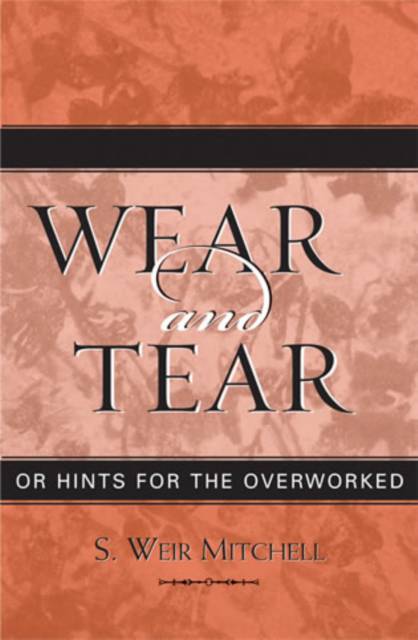
Bedankt voor het vertrouwen het afgelopen jaar! Om jou te bedanken bieden we GRATIS verzending (in België) aan op alles gedurende de hele maand januari.
- Afhalen na 1 uur in een winkel met voorraad
- In januari gratis thuislevering in België
- Ruim aanbod met 7 miljoen producten
Bedankt voor het vertrouwen het afgelopen jaar! Om jou te bedanken bieden we GRATIS verzending (in België) aan op alles gedurende de hele maand januari.
- Afhalen na 1 uur in een winkel met voorraad
- In januari gratis thuislevering in België
- Ruim aanbod met 7 miljoen producten
Zoeken
Omschrijving
S. Weir Mitchell's work on the etiology and treatment of neurasthenia, commonly called "brain drain," provided the intersection of medical diagnoses of a serious ailment with cultural critiques of modernity and the vigorous reassertion of traditional gender ideologies. It was for neurasthenia that Mitchell treated feminist Charlotte Perkins Gilman and countless others, for whom the pace and pressures of modern society had proved too difficult to bear, and who were exhibiting symptoms ranging from severe depression and unbearable lassitude, to anxiety and panic disorders. First published in 1871, Wear and Tear became a best-seller, a popular general treatise on culture and mental and physical health and brought Mitchell significant public attention. More than a century later, Wear and Tear may be seen as cautionary tales, reminding contemporary readers of the persistence of traditional gender ideologies, and the ways in which pseudo-scientific arguments have undermined women's claims for an equal footing in the public and private spheres.
Specificaties
Betrokkenen
- Auteur(s):
- Uitgeverij:
Inhoud
- Aantal bladzijden:
- 100
- Taal:
- Engels
- Reeks:
- Reeksnummer:
- nr. 4
Eigenschappen
- Productcode (EAN):
- 9780759106734
- Verschijningsdatum:
- 1/02/2004
- Uitvoering:
- Hardcover
- Formaat:
- Ongenaaid / garenloos gebonden
- Afmetingen:
- 176 mm x 229 mm
- Gewicht:
- 167 g

Alleen bij Standaard Boekhandel
+ 118 punten op je klantenkaart van Standaard Boekhandel
Beoordelingen
We publiceren alleen reviews die voldoen aan de voorwaarden voor reviews. Bekijk onze voorwaarden voor reviews.









